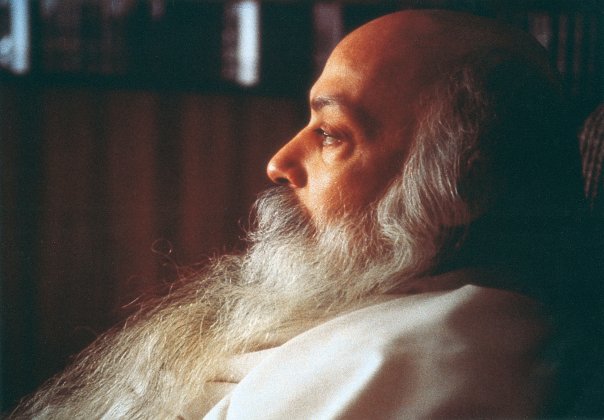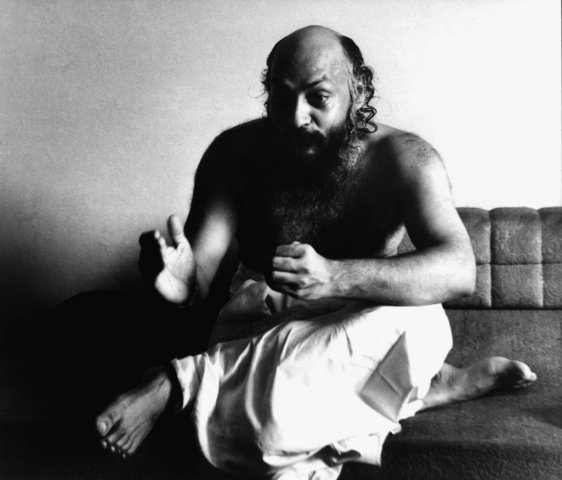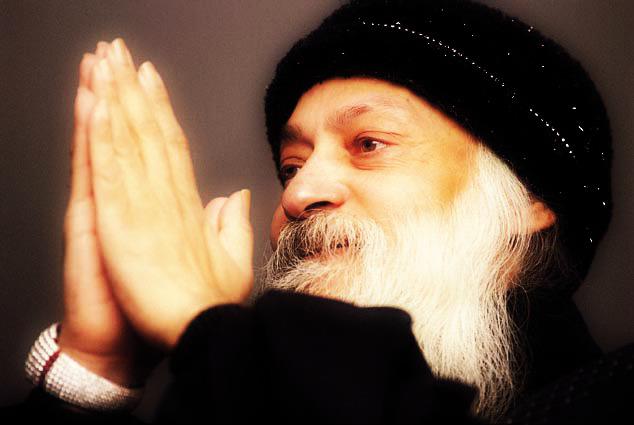Osho Quotes on Sadness
- The real man one day becomes enlightened. The unreal man never becomes enlightened. When the real man becomes enlightened, then there is no joy and no sadness. Then his being is just a witness. Joy comes: he watches it. Sadness comes: he watches it.
- You are sad — be aware. Let sadness become your meditation. You are angry — be aware. You are in love — be aware. Use all possibilities, all opportunities to be more and more aware. Slowly slowly, the momentum gathers, and one day something explodes in you. That explosion is known in the East as the flowering of the one-thousand-petalled lotus.
- You go on living in a fantasy world. Your life is nothing but your thinking, a pseudo thing; and so is your death. Your illness, your health, your happiness, your sadness are all so bogus that how can you die a real death? A real death has to be earned. One has to become worthy of real death. And one becomes worthy only by living truly.
- Our mind is a chooser; that’s why the problem arises. Remain choiceless. And whatsoever happens and wherever you are, right or left, in the middle or not in the middle, enjoy the moment in its totality. While happy, dance, sing, play music — be happy! And when sadness comes, which is bound to come, which is coming, which has to come, which is inevitable, you cannot avoid it… if you try to avoid it you will have to destroy the very possibility of happiness. The day cannot be without the night, and the summer cannot be without the winter, and life cannot be without death.
- Remember, one who enjoys more is bound to suffer more because he becomes very sensitive. But suffering is not bad. If you understand it rightly, suffering is a cleansing. If you understand it rightly, sadness has a depth to it which no happiness can ever have. A person who is simply happy is always superficial. A person who has not known sorrow and has not known sadness, has not known the depths. He has not touched the bottom of his being; he has remained just on the periphery. One has to move within these two banks. Within these two banks flows the river.
- Sadness has come. It has happened to you; it is not you. The moment you remember this, suddenly you will see a distance arising between you and the sadness. It does not affect you anymore. When you lose awareness, it affects you; when you gain awareness, there is a distance. The more awareness rises to a higher peak, the more the distance becomes greater and greater. A moment comes when you are so far away from your sadness that it is as if it is no longer there.
- Life consists of sadness too. And sadness is also beautiful; it has its own depth, its own delicacy, its own deliciousness, its own taste. A man is poorer if he has not known sadness; he is impoverished, very much impoverished. His laughter will be shallow, his laughter will not have depth, because depth comes only through sadness. A man who knows sadness, if he laughs, his laughter will have depth. His laughter will have something of his sadness too, his laughter will be more colorful.
- You are sad. Go into your sadness rather than escaping into some activity, into some occupation, rather than going to see a friend or to a movie or turning on the radio or the tv. Rather than escaping from it, turning your back towards it, drop all activity. Close your eyes, go into it, see what it is, why it is — and see without condemning it, because if you condemn you will not be able to see the totality of it. See without judging. If you judge, you will not be able to see the whole of it. Without judgment, without condemnation, without evaluation, just watch it, what it is. Look as if it is a flower, sad; a cloud, dark; but look at it with no judgment so that you can see all the facets of it.
- That’s how it should be. If you can like your sadness also, then the sadness is no longer sad. The sadness is sad because you dislike it. The sadness is sad because you would not like to be in it. The sadness is sad because you reject it. Even sadness becomes a flowering of tremendous beauty, of silence, of depth, if you like it. Nothing is wrong; that’s what I want you to be: to like everything that happens, even sadness. Even death has to be loved; only then will you transcend death. If you can accept death, love and welcome it, now death cannot kill you; you have transcended it.
- When sadness comes, accept it. Listen to its song. It has something to give to you. It has a gift which no happiness can give to you, only sadness can give it.
- Happiness is always shallow; sadness, always deep. Happiness is like a wave, sadness is like the innermost depth of an ocean. In sadness you remain with yourself, left alone. In happiness you start moving with people, you start sharing In sadness you close your eyes; you delve deep within yourself. Sadness has a song — a very deep phenomenon is sadness. Accept it. Enjoy it. Taste it without any rejection, and you will see that it brings many gifts to you which no happiness can ever bring.
- If you can accept sadness, it is no more sadness. You have brought a new quality to it. You will grow through it. Now it will not be a stone, a rock on the path blocking the way; it will become a step. And remember always: a person who has not known deep sadness is a poor person. He will never have an inner richness. A person who has lived always happy, smiling, shallow, has not entered into the innermost temple of his being. He has missed the innermost shrine.
- Remain capable of moving with all the polarities. When sadness comes, be REALLY sad. Don’t try to escape from it — allow it, cooperate with it. Let it dissolve in you and you be dissolved in it. Become one with it. Be really sad: no resistance, no conflict, no struggle. When happiness comes, be happy: dance, be ecstatic. When happiness comes, don’t try to cling to it. Don’t say that it should remain always and always; that is the way to miss it. When sadness comes, don’t say,’Don’t come to me,’ or,’If you have come, please go soon.’ That is the way to miss it.
- Don’t reject sadness and don’t cling to happiness. and soon you will understand that happiness and sadness are two aspects of the same coin. Then you will see that happiness also has a sadness in it, and sadness also has a happiness in it. Then your inner being is enriched. Then you can enjoy everything: the morning and the evening also, the sunlight and the dark night also, the day and the night, the summer and the winter, life and death — you can enjoy all.



